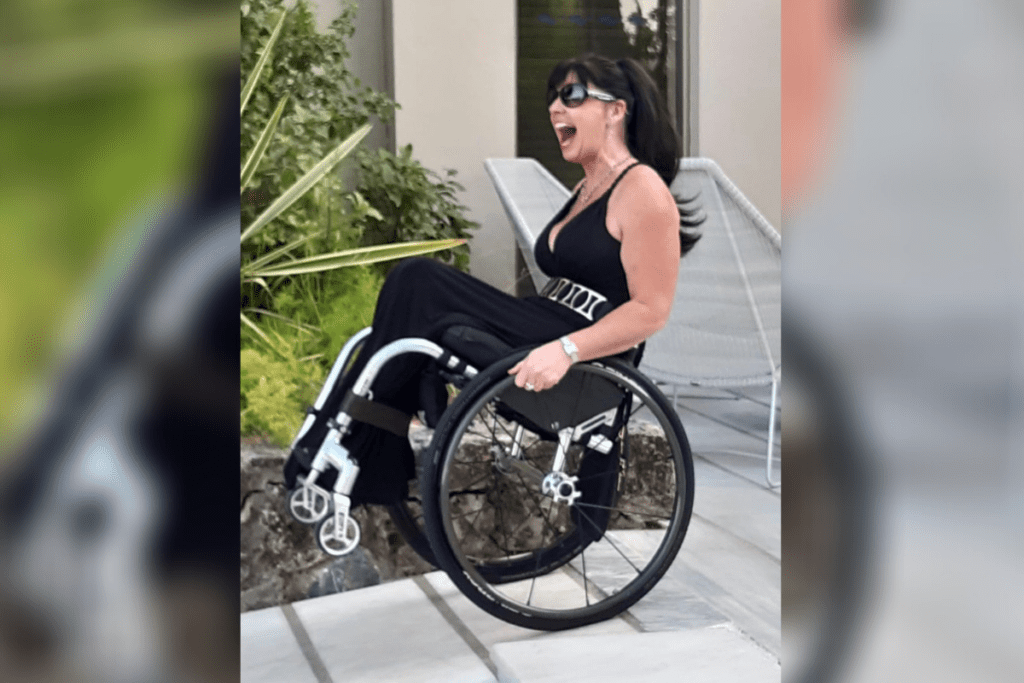Spinal cord injury and sex: Common questions answered
3 February 2021

After spinal cord injury, sex and intimacy can be a major worry. It can feel like your intimate life has been turned on its head, and you may not know where to start. Back Up is here to help everyone affected by spinal cord injury live life to the full, so we’ve recently published a new resource on sex and spinal cord injury, with psychosexual therapist Michelle Donald. As part of this, we wanted to answer some of the most common questions asked about sex and spinal cord injury.
Read on to hear our answers to some of the questions you may be asking about sex and spinal cord injury, and be sure to check out our new resource to learn even more.
Please note that Back Up are not medical professionals. The information in this piece comes from our new information resource from accredited psychosexual therapist Michelle Donald. If you have any medical questions, ensure you contact your GP. For support in living well with a spinal cord injury, don’t hesitate to get in touch with Back Up.
#1: “I’m worried about managing my bladder and bowels while having sex with my partner. Do you have any advice?”
Do not let worries about bladder and bowel management stop you from having a fulfilling sex life. Accidents do not need to be a concern with proper preparation. Because the nerves stimulated during sex may stimulate the nerves that control bladder and bowel function, ensure that you have catheterized and emptied your bowels before intercourse. You can read more about bladder and bowel care during sex in Michelle’s resource, as well as more general advice in our bladder and bowel management information piece.
Most importantly, do not worry if you have an accident. They happen! If you are still worried, talk about it honestly with your partner or with someone at Back Up.
#2: “Can I still have a fulfilling sex life after spinal cord injury?”
Absolutely. Depending on your spinal cord injury, how you have sex may change but that doesn’t mean sex is impossible. For men sexual function can be aided by medication such as Viagra, and non-invasive methods like vacuum erection devices.
For women, you may experience changes in sensation and changes in your ability to lubricate. In her resource, Michelle recommends self-exploration – trying how different sensations feel on the body post-injury. She also recommends trying different lubricant options, which she explores in a series of webinars on YouTube.
Always remember that a fulfilling sex life is possible. Take your time to get to know your body again after spinal cord injury.
#3: “Is having children still possible after spinal cord injury?”
Having children and starting a family is still possible after spinal cord injury. A couple of years ago we interviewed Clair. She told us all about her experiences with pregnancy and becoming a mum after spinal cord injury.
It is also possible that some women may stop menstruating in the months following spinal cord injury, which is the body’s natural response to a major trauma. Ensure that you practice good hygiene with period products after spinal cord injury by changing tampons or pads regularly. This can prevent skin damage from sitting in damp clothes.
Remember that spinal cord injury does not affect fertility. Ensure that you continue to practice safe sex, and discuss contraception options with your GP.
#4: “Where can I get help?”
For any medical questions, seek advice from your spinal centre or GP. Our resource with Michelle also has a helpful signposting section at the end. If you would like to talk to someone in a similar situation to yourself, Back Up is here. Get in touch with our team and find out how we can support you with our mentoring service.
Do you need support after spinal cord injury? Register for our services and our team will be in touch.

